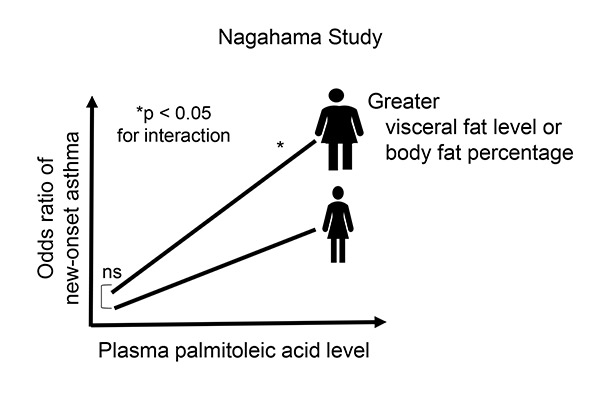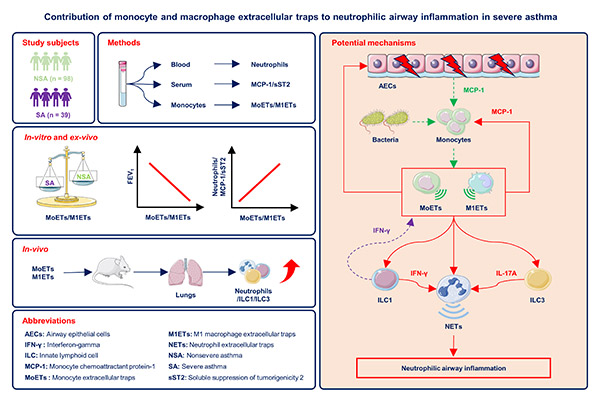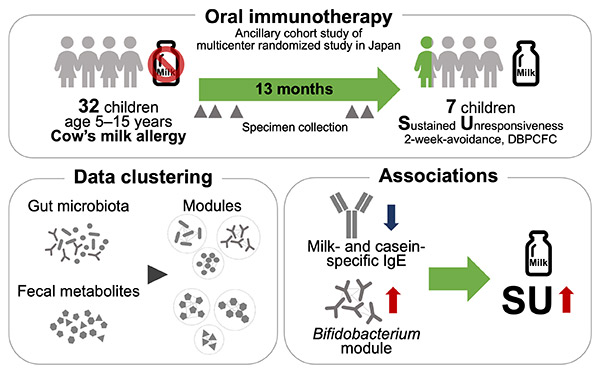Volume 73, Issue 1 (January 2024)
Editor's Choices
Editor’s comment: Obesity and increased body mass index (BMI) are the known risk factors for adult-onset asthma. Serum levels of free fatty acid (FFA) and other blood lipids are generally elevated in obese patients and may be involved in the onset of asthma. Tashima et al. used self-reporting questionnaires, lung function tests, and blood tests at baseline and 5 years later as follow-up using a community-based Nagahama Study in Japan to clarify the relationship between plasma fatty acids and new-onset asthma. They found that higher levels of FFA, palmitoleic acid, or oleic acid were significantly associated with new-onset asthma, independent of other factors.
Editor’s comment: Increased neutrophil counts in blood or sputum are related to poor clinical outcomes for severe asthma. Quoc et al. examined classical monocytes (CM) and CM-derived macrophages in patients with severe and non-severe asthma to elucidate how CM and CM-derived macrophages activate neutrophils/innate lymphoid cells in severe asthma. They found that the severe asthma group had significantly higher CM counts with increased migration and higher levels of serum MCP-1/sST2 than the non-severe group. They also found that macrophage-derived extracellular traps could contribute to asthma severity by enhancing neutrophilic airway inflammation.
Editor’s comment: Oral immunotherapy (OIT) can ameliorate cow's milk allergy. Shibata et al. conducted an ancillary cohort study of a multicenter, randomized, parallel-group, delayed-start design study to determine the change in clinical and gut environmental factors important for acquiring sustained unresponsiveness (SU) after OIT for cow's milk allergy. They found that gut environmental factors shifted during OIT, but only initially, and returned to the baseline at the end. They also identified the clinical and gut environmental factors associated with achieving SU in OIT. These findings offer evidence for understanding the mechanism of OIT with relation to the gut environment.





